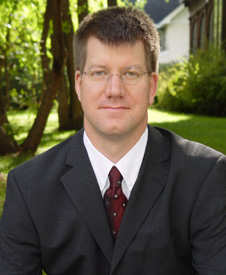 Abstract: The energy sector will undergo fundamental changes over the next ten years. Prices for fossil energy resources are continuously increasing, there is an urgent need to reduce CO2 emissions, and the United States and European Union are strongly motivated to become more independent from foreign energy imports. These factors will lead to installation of large numbers of distributed renewable energy generators, which are often intermittent in nature.
Abstract: The energy sector will undergo fundamental changes over the next ten years. Prices for fossil energy resources are continuously increasing, there is an urgent need to reduce CO2 emissions, and the United States and European Union are strongly motivated to become more independent from foreign energy imports. These factors will lead to installation of large numbers of distributed renewable energy generators, which are often intermittent in nature.
This trend conflicts with the current power grid control infrastructure and strategies, where a few centralized control centers manage a limited number of large power plants such that their output meets the energy demands in real time. As the proportion of distributed and intermittent power production capacity increases, this task becomes much harder, especially as the local and regional distribution grids where renewable energy producers are usually installed are currently virtually unmanaged, lack real time metering and in many cases are not built to cope with power flow inversions.
While the hierarchical command-and-control approach served well in a world with a few large scale generation facilities and many small consumers, a more flexible, decentralized, and self-organizing control infrastructure will have to be developed that can be actively managed to balance both the large grid as a whole, as well as the many lower voltage sub-grids. One strong candidate for this control infrastructure is to create energy markets at the retail level. To help mitigate the risk of instituting such markets in the real world, we are deve
loping a competitive market simulation testbed. We expect that this testbed will stimulate research and development of market structures along with automated software agents that can support decision making in these markets. Participants in the competition will design intelligent agents that will act as brokers, building portfolios of energy producers and consumers, and matching energy supply from producers with energy demand from consumers. The competition will closely model reality by bootstrapping the simulation environment with real historic load, generation, and weather data.
Wolfgang Ketter is Assistant Professor at the Department of Decision and Information Sciences at the Rotterdam School of Management of the Erasmus University. He received his Ph.D. in Computer Science from the University of Minnesota in 2007. He founded and runs the Learning Agents Research Group at Erasmus (LARGE). The primary objective of LARGE is to research, develop, and apply autonomous and mixed-initiative intelligent agent systems to support human decision making in the area of business networks, electronic markets, information systems and supply-chain management. He was co-chairing the TADA workshop at AAAI 2008, the general chair of TAC 2009, and is member of the board of directors of the association for trading agent research since 2009. He is the program co-chair of the International Conference of Electronic Commerce 2011. His research has been published in various information systems, and computer science journals such as AI Magazine, Decision Support Systems, Electronic Commerce Research and Applications, European Journal of Information Systems, INFORMS OR/MS Today, and International Journal of Electronic Commerce. He serves on the editorial board of Electronic Commerce Research and Applications.
